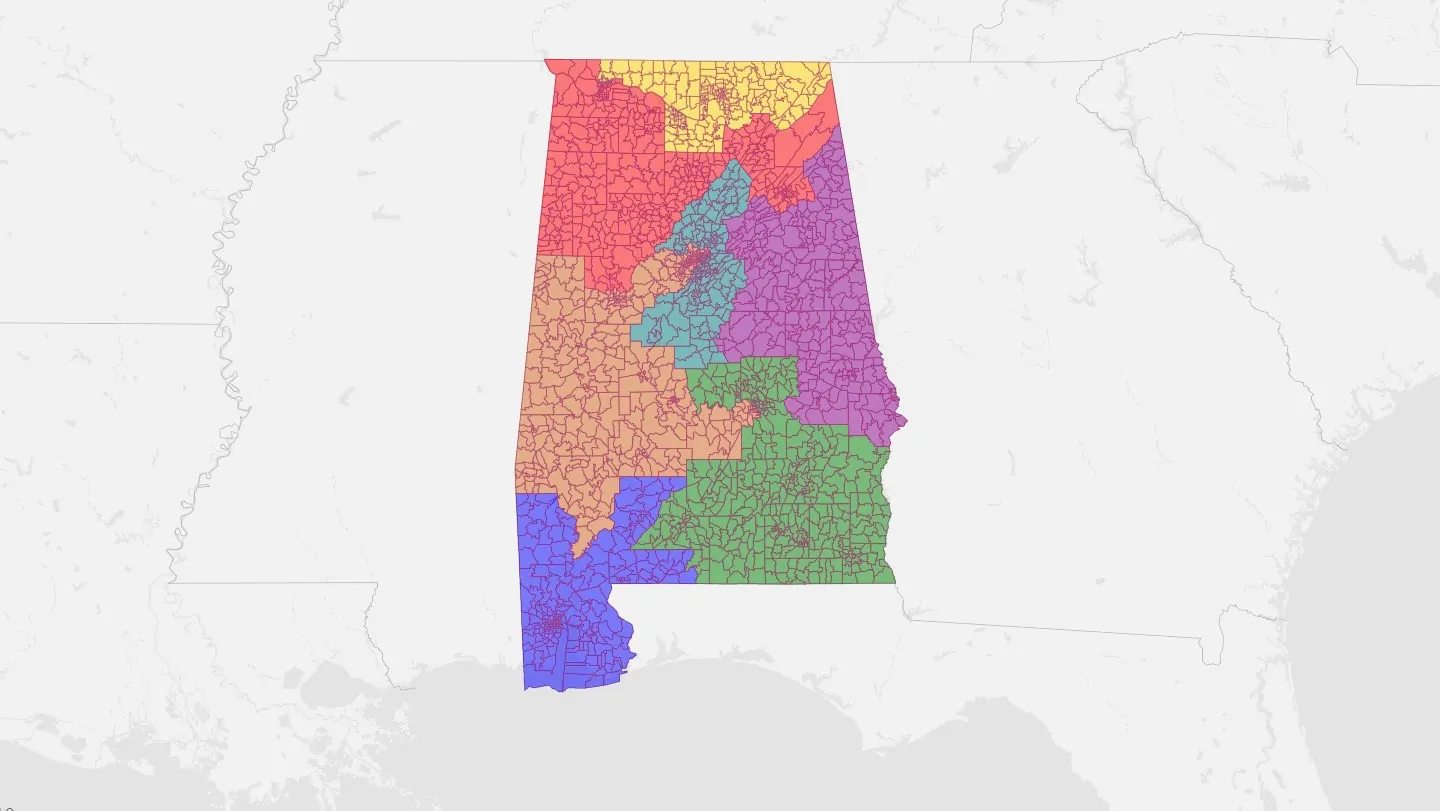|
Getting your Trinity Audio player ready...
|
Last October, the U.S. Supreme Court heard oral arguments from the State of Alabama and the organizations challenging the state’s 2021 congressional redistricting process.
Now the court is finally in the ruling phase, with a decision expected to come down before the end of June.
Evan Milligan, executive director fo Alabama Forward and primary plaintiff in the case, said the U.S. Supreme Court should side with the lower court, which unanimously agreed with the plaintiffs that the state’s method violated Section 2 of the Voting Rights Act.
“In this instance, Black Alabamians make up 27 percent of our population but only one of seven congressional districts features a majority Black voting-age population,” Milligan said. “Is that inherently wrong? You have to look at it; between the Supreme Court and Congress, they’ve come up with formulas and methods to look at those numbers and see if it’s just a coincidence, just the math— or is something going on to dilute the representation of Black people? We overwhelmingly convinced a federal court in Alabama–with two of the three judges appointed by Donald Trump—convinced them unanimously using those formulas and methods that the state had violated section 2 of the Voting Rights Act, diluting the strength of Black Alabamians.”
The state has pushed a theory that the 14th Amendment requires the state to draw district lines without regard to race and explained that race was not a factor that was visible when drawing the lines.
The court’s newest justice Ketanji Brown Jackson openly questioned that line of reasoning during the state’s oral arguments, saying the 14th Amendment itself is conscious of race based on contemporary discussions.
“The same state also argued in its same brief that creating a second district majority black population would violate the voting rights of descendants of French settlers that make up a unique ethnic cultural group if split between districts,” Milligan said. “So in the same brief the state said ‘don’t consider race, but only consider race when it comes to white people.’ That is not reflective of the best of Alabama.”



















































